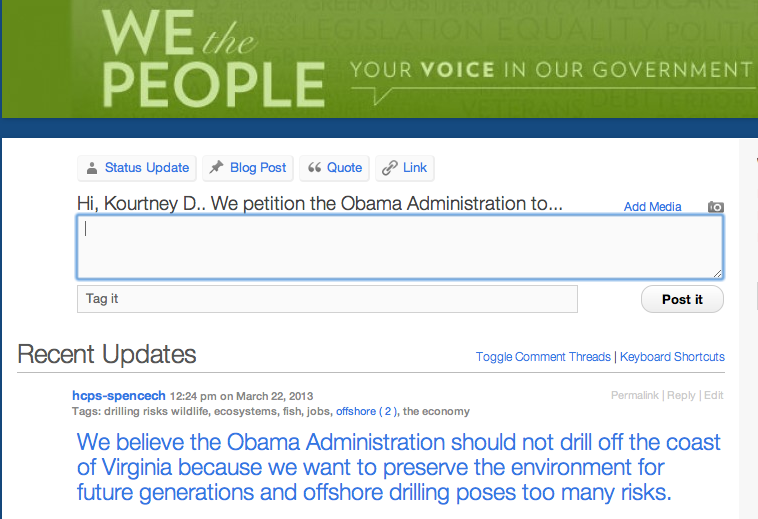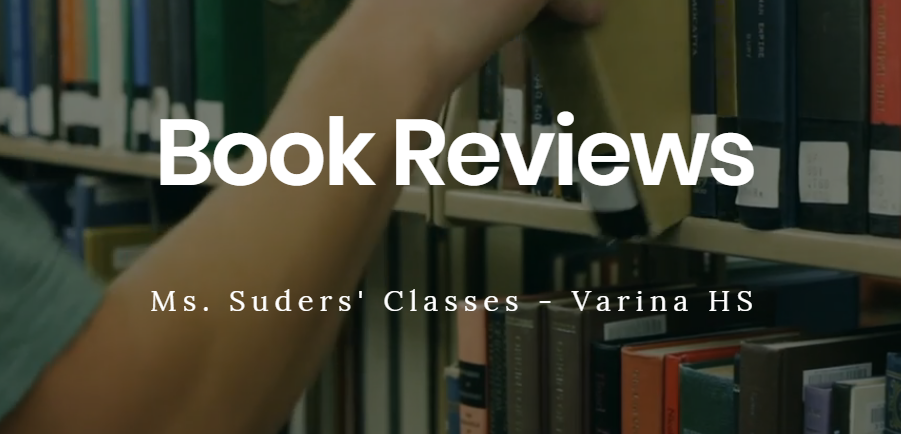Summary
As we seek energy sources for the future we are confronted by controversial issues. The various technologies available to provide energy and their potential side effects are currently being investigated as Congress debates whether or not to drill for additional oil supplies off the coast of Virginia. In this interdisciplinary unit students participated in a variety of experiences which led them to form their own opinions about offshore drilling. Having formed educated opinions, they explored ways use modern technologies to advocate for what they believe in.
TIPC Ratings
This lesson provides students with the opportunity to find, evaluate, and use information as they deem appropriate/important. Each student individually conducted research using his preferred method and then accessed a class database that was used to share their findings. Students from multiple classes all worked within the same document so that the links/resources emulated a social bookmarking experience. Essentially, they found the tools/resources/information they needed to make informed decisions and shared this with their peers.
Throughout this lesson students had different opportunities to communicate and collaborate with their peers. In science they worked in a shared research database and video conferenced with an expert. In English they used Google Docs to create their persuasive papers to allow for easy peer editing and sharing among their peers. In Civics, groups worked together on a collaborative, virtual document to establish norms, roles, and create their petition for the Obama administration/blog. Students had the freedom to select the tools they identified as most important to meet their objectives. Students reflected on their roles as communicators and collaborators and used that reflection to help identify areas for future growth.
The entire lesson was centered around the question: To Drill or Not to Drill? Students had to work independently and cooperatively to form an opinion about an authentic, controversial topic. Throughout each experience in science, English, and Civics, students were challenged to extend their knowledge in ways that would lead them to make an informed decision about their position on offshore drilling. They worked independently and collaboratively to use a variety of digital resources to support their answering of the guiding question.
This lesson provided students with the opportunity to apply research, communication tools, and collaborative processes to create new ideas for a petition designed for the Obama administration. Students not only had to make sense of the topic, but to use their varied experiences to lead to new ideas. This lesson had a great balance of work between independent thinking, creative communications, and collaborative processes that allowed students to mesh ideas and understandings to ultimately support the decisions they made.
Download Files
- Lesson Plan
- We the People – Overview
- Research Database
- Persuasive Paper Action Shots
- Student Samples





